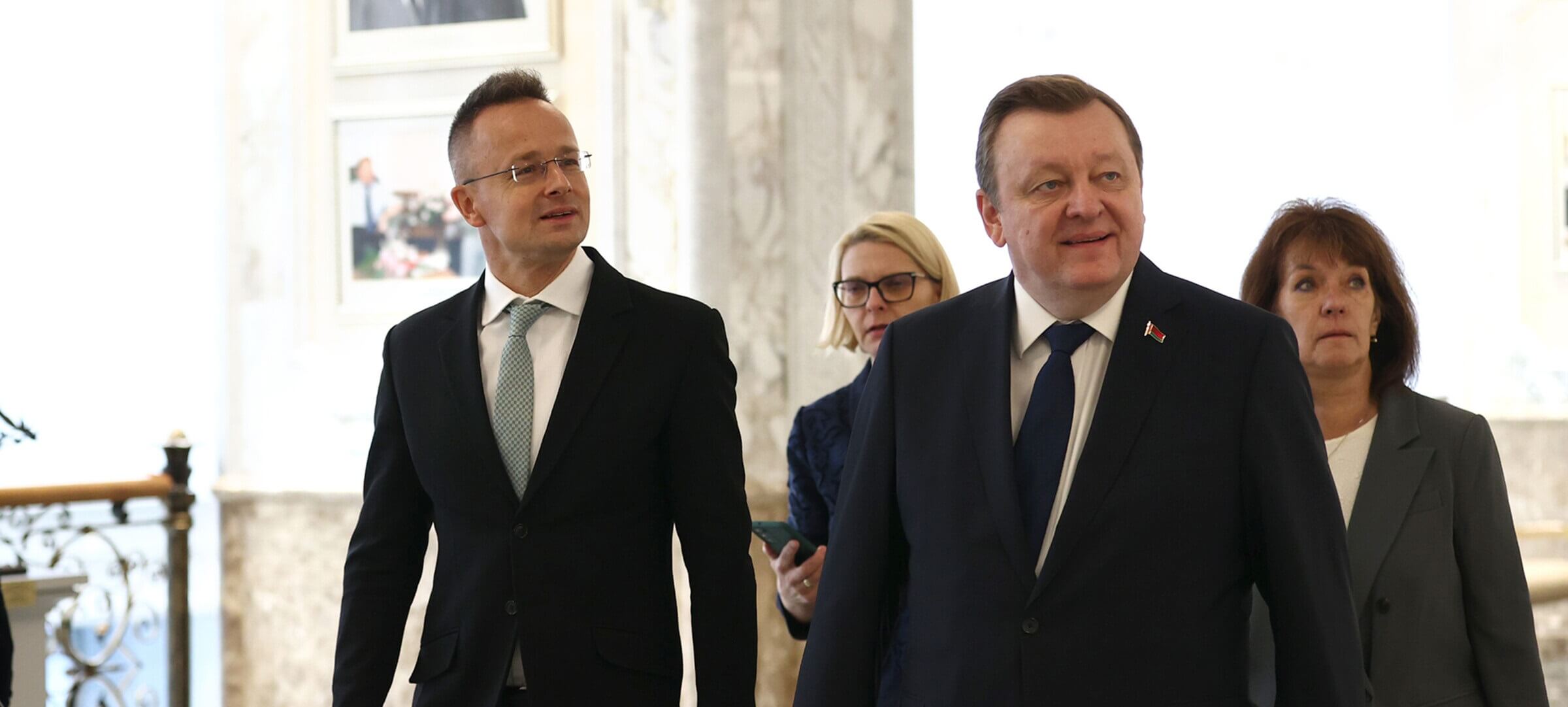
Budapest ignores the European Union’s policy to isolate Belarus. What does the collaboration between Budapest and Minsk rest on?
Budapest’s dissenting opinion
On October 26-27, Minsk hosted the international conference “Eurasian Security: Reality and Prospects in a Transforming World” with officials from organizations that are led or heavily influenced by Russia in attendance. Russian Foreign Minister Sergei Lavrov was the keynote speaker.
Although Minsk is located in the geographical center of Europe, the list of conference participants suggests that they were discussing the security system in Asia.
Hungarian Foreign Minister Peter Szijjártó was the only attendee from an EU country.
Hungary’s politicians are known for intransigence and defiance on key issues debated in the EU, most importantly Russia’s war against Ukraine.
Budapest has close relations with Russia. Unlike most EU countries, Hungary continues to buy Russian gas. Prime Minister Viktor Orban met with Russian President Vladimir Putin on the sidelines of the Belt and Road Forum in Beijing on October 17. He was the only EU leader at the event. Budapest also ignores the EU’s effort to limit its high-level contacts with Belarus following the disputed presidential election in 2020.
Szijjártó refers to Łukašenka “Mr. president”
In February 2023, the Hungarian foreign minister paid a working visit to Minsk. He was the highest-ranking EU official to visit the country after 2020. He did not meet with Alaksandar Łukašenka as the EU does not recognize him as the president of Belarus.
Belarusian Foreign Minister Siarhiej Alejnik paid a return visit to Hungary on April 11 and 12. In September, the two foreign ministers also met in New York on the sidelines of the UN General Assembly.
Later the same month, the new Hungarian ambassador, Zita Ilona Benczyk, presented her credentials to Łukašenka, defying the EU’s non-recognition of the Belarusian dictator.
Hungary is the only EU country represented in Belarus by the ambassador. All other EU countries have only temporary charges d’affaires in Minsk.
During his October 26-27 visit, Szijjártó met Łukašenka and addressed him as “Mr. president.”
The Belarusian ruler was so happy that he burst with compliments. He described Orban as “our good friend” and invited him to visit Belarus. Łukašenka also said he strongly supported the preservation of the European Union.
Trade in decline, converging positions on Russian war
The partnership between Belarus and Hungary lacks any significant economic basis. “As far as our trade and economic relations are concerned, unfortunately, they are declining,” Łukašenka told Szijjártó. Annual trade between the two countries totaled $200 million and is shrinking.
Łukašenka thanked Hungary for making its stadiums available for home matches of the Belarusian national soccer team and Belarusian clubs participating in European cups after UEFA banned matches under its auspices in Belarus.
The partnership between Belarus and Hungary is mainly based on their converging positions on the Russian war in Ukraine.
Łukašenka said, “Our position on Ukraine is almost the same as that of Hungary. We don’t need this war, just as you don’t need it. We are neighbors . . . I’m absolutely convinced that if the Europeans wanted to, we could end this war and come to an agreement.”
Around the same time, Orban was quoted by a Hungarian radio station as saying that Ukraine would not succeed on the battlefield and that the Russians cannot not be defeated on the front, and “there is no doubt that the Russian president will not tolerate failure.”
According to him, the EU’s strategy of aiding Ukraine has failed. Therefore, he said, it is necessary to stop providing military aid to Kiev and start negotiations.
As a result, Hungary blocked amendments to the EU budget for 2024-2027 that called for additional aid to Kiev.
Minsk and Budapest have similar, if not identical, positions on the war in Ukraine. While Minsk’s pro-Moscow policy remains unchanged, Hungary’s loyalties swing toward Moscow. This makes it easier for Minsk and Budapest to find common ground.